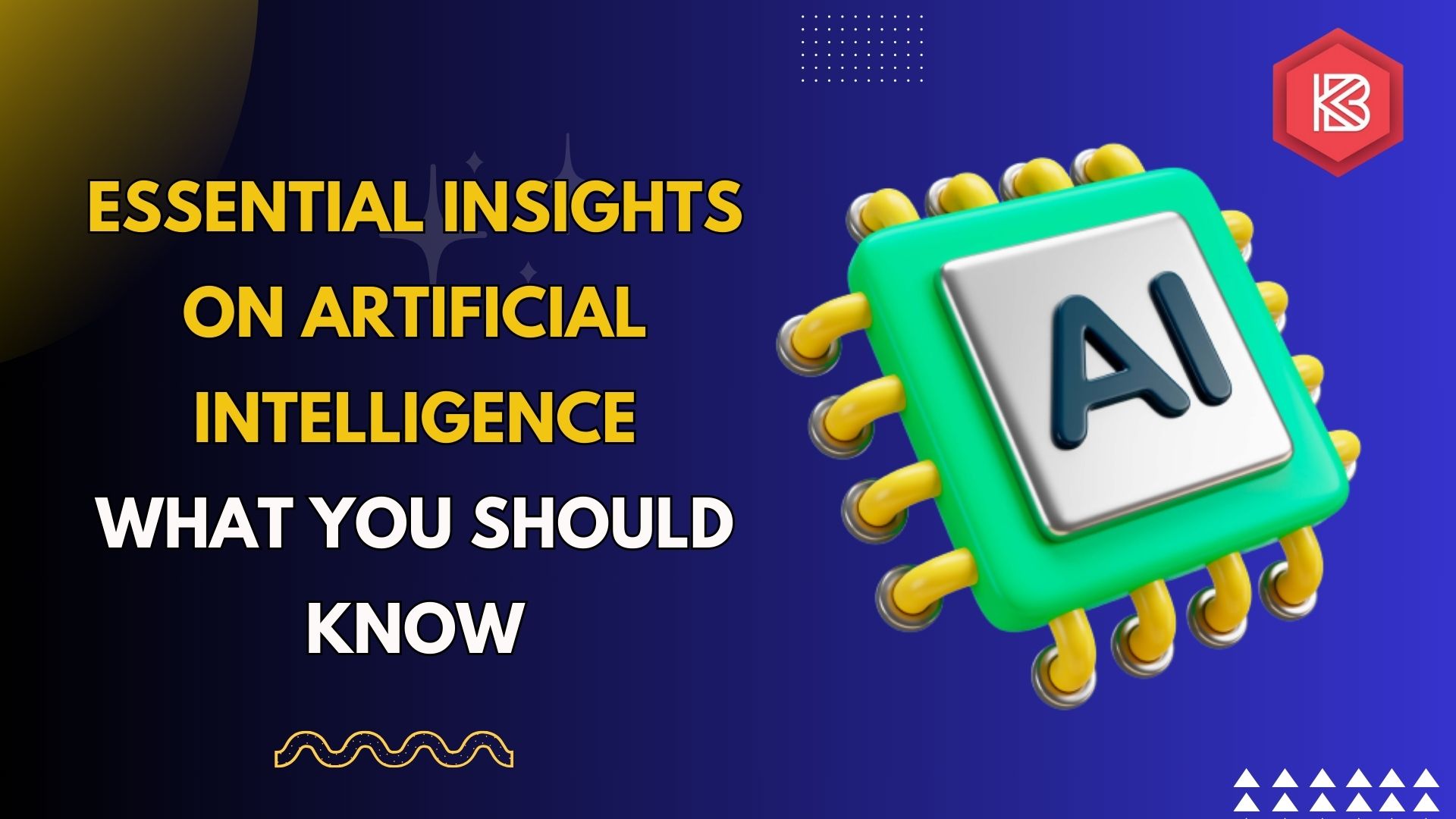Artificial Intelligence, commonly referred to as AI, has swiftly shifted from the realm of science fiction to become an integral part of our everyday lives and industries. This fascinating and rapidly evolving field is revolutionizing not only our work processes but also our communication methods and our very vision of the future. In this all-encompassing guide, we will embark on a profound journey through the domain of AI, delving into its fundamental elements, real-world applications, associated challenges, and profound societal impacts.
What Is Artificial Intelligence?
Artificial Intelligence, or AI, falls under the domain of computer science, with its primary objective being the development of machines capable of exhibiting intelligent behaviors, often mirroring human cognitive abilities. This expansive field comprises several subdisciplines, such as machine learning, natural language processing, and computer vision. AI systems possess the capacity to acquire knowledge from data, engage in logical reasoning, make informed decisions, and even engage in human interactions.
Types of Artificial Intelligence
AI can be categorized into three main types:
Narrow AI (Weak AI): These AI systems excel in specific tasks, like voice assistants or recommendation algorithms.
General AI (Strong AI): This is the holy grail of AI—a machine that possesses human-like intelligence and can perform any intellectual task humans can.
Artificial Superintelligence: This theoretical level surpasses human intelligence, but it’s still a topic of philosophical debate.
AI Applications
AI is everywhere, from your smartphone’s voice assistant to autonomous vehicles. Here are some key AI applications:
Healthcare: AI aids in diagnostics, drug discovery, and personalized treatment plans.
Finance: AI models predict market trends and manage portfolios.
Manufacturing: Robotics and AI optimize production processes.
Customer Service: Chatbots and virtual assistants handle customer inquiries.
Education: AI-driven platforms personalize learning experiences.
Entertainment: Recommendation algorithms suggest content.
Autonomous Vehicles: AI powers self-driving cars.
Security: AI identifies anomalies and threats in real time.
Machine Learning: The Heart of AI
Machine learning is a branch of artificial intelligence where systems improve their performance by learning from data. Various learning strategies, such as supervised learning, unsupervised learning, and reinforcement learning, fall under this category. Numerous AI applications, including picture recognition, language translation, and the identification of fraudulent activity, are built on machine learning techniques.
Deep Learning: Unleashing Neural Networks
Deep learning, a specialized branch within the field of machine learning, employs artificial neural networks to tackle intricate problem-solving tasks. Its impact has been transformative, propelling advancements in domains such as image and speech recognition, natural language processing, and even achieving remarkable feats in strategic games like chess and Go.
Natural Language Processing (NLP)
NLP focuses on enabling machines to understand, interpret, and generate human language. It’s behind virtual assistants like Siri and chatbots that provide customer support.
Ethical Considerations
As AI becomes more integrated into society, ethical concerns arise. Topics like bias in algorithms, job displacement, privacy invasion, and the potential for AI to be used for harmful purposes need careful consideration.
The Future of AI
AI’s future holds both promise and difficulty. While the industry continues to develop novel applications, researchers are aiming towards General AI. AI is predicted to have a significant impact on every aspect of our lives as it develops.
Challenges and Limitations
AI isn’t without its hurdles. Challenges include data privacy concerns, ethical dilemmas, the need for large datasets, the black-box nature of some AI models, and the risk of job displacement in certain industries.
Your Role in the AI Revolution
Becoming an AI enthusiast doesn’t necessitate a background in computer science. Acquiring a fundamental understanding of AI and keeping abreast of its advancements can empower you to navigate the AI-driven landscape with greater proficiency. Embrace AI as a valuable resource to augment your skill set and advance your career.
Conclusion
Artificial Intelligence is no longer a distant concept but an integral part of our daily lives. Understanding its fundamentals, applications, challenges, and ethical considerations is essential as we navigate a future that AI will significantly shape. Embracing AI’s potential and addressing its challenges will be key to harnessing its benefits for the betterment of society. Stay curious, stay informed, and stay ready for the AI revolution.


